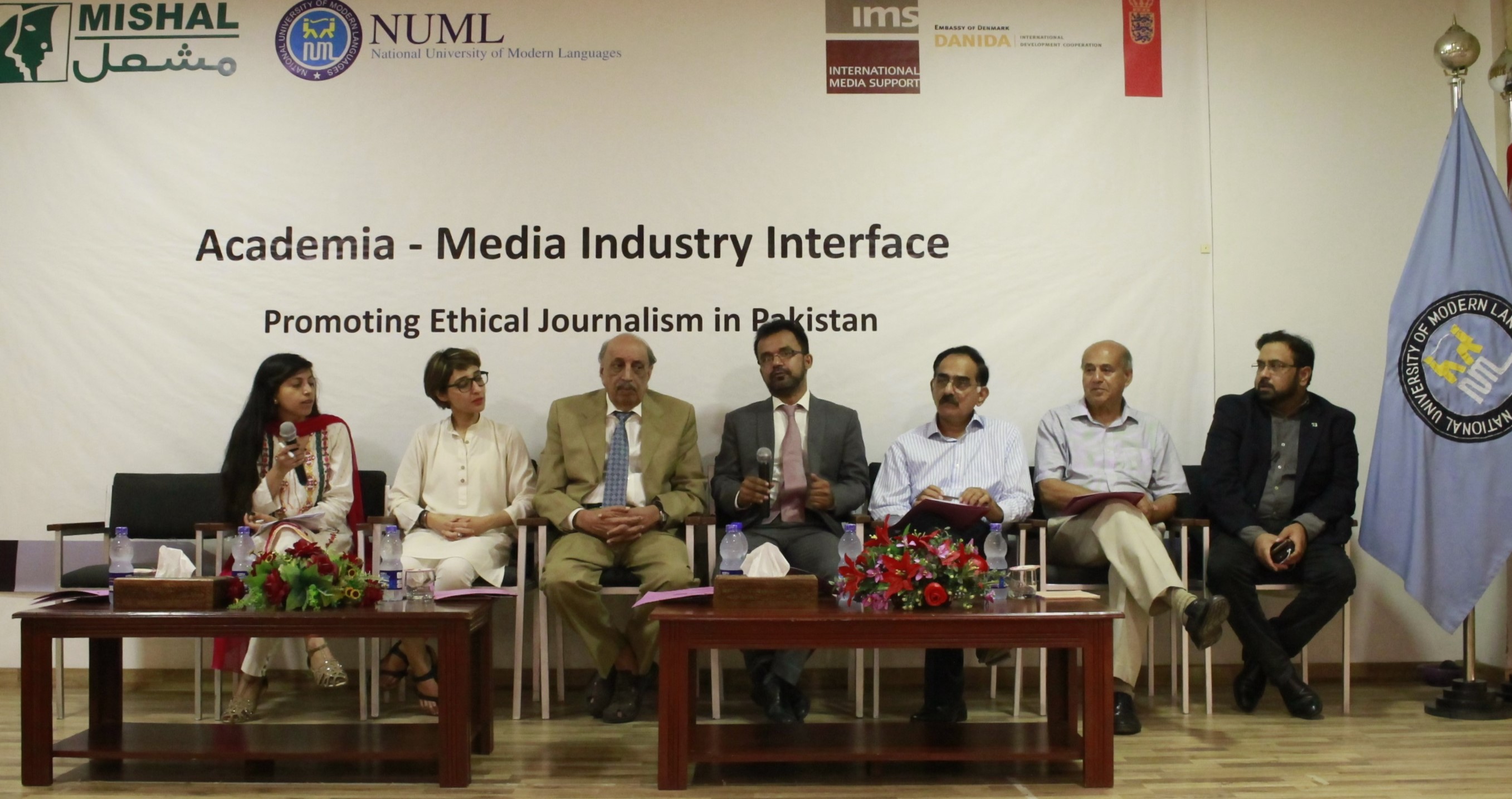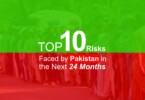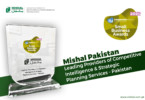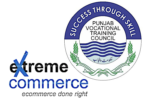Islamabad, PK – 4 August 2016 – To improve the ethical standards of journalism in Pakistan, more collaboration and interaction between academia and media industry needs to be created. This would enable institutionalization of new knowledge generation at academia and better use of research at the media industry level; this was the consensus of the fifth interactive session held at the National University of Modern Languages (NUML), Islamabad today.
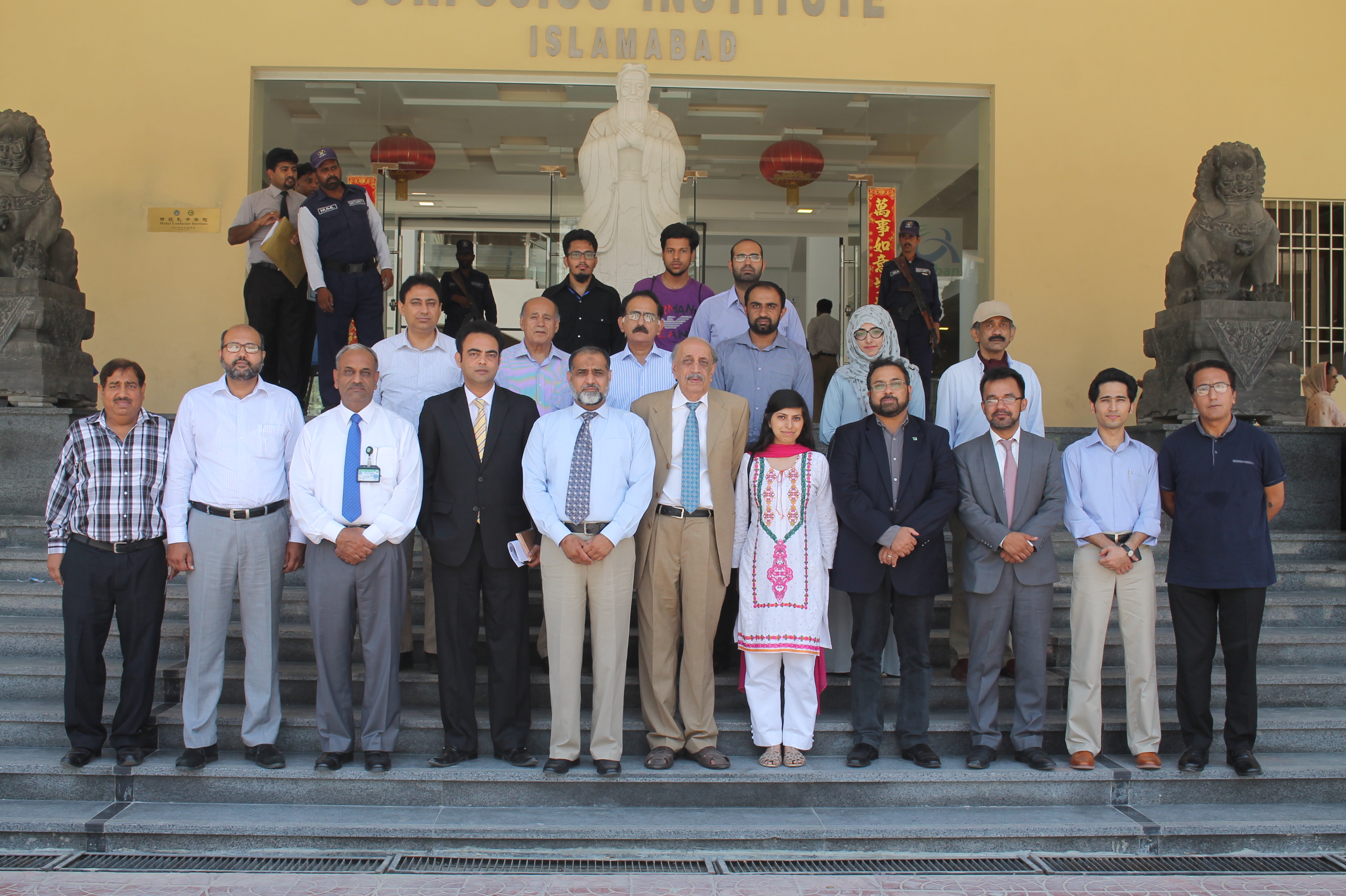
Industry experts, senior journalists, media professionals and academicians attended the seminar along with a large number of students, scholars and faculty from the journalism and media sciences departments.
Pakistan ranks at 98 among 140 countries in the world on academia-industry collaboration measured by the Global Competitiveness Report 2015-2016 of the World Economic Forum. The participants concluded that strong academia and media industry collaboration is the only way to improve the ethical standards for the media industry.
The seminar discussed the need for connecting academia and industry, especially in the media sector. The interface had representation from both industry and academia on one platform to formally share ideas, to improve job security for fresh graduates and be a part of the knowledge-based media industry, while ensuring media ethics in principle and practice both.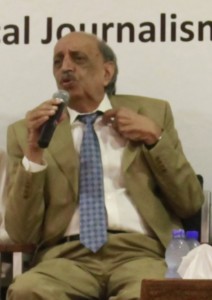
Speaking on the occasion, Prof. Dr. Anwar Nasim, President Pakistan Academy of Sciences said, “Individuals can play key role in socio-economic development of any nation, these are abbreviated as Non-Governmental Individuals (NGIs)”. He further said, “The youth of the country must decide what they want to thrive in; they should then ensure that their maximum potential is utilized so they can make their mark on the society and their respective field both in their personal and professional lives.”
Universities must adopt new approaches to create value for the society by creating workforce with new skills, which can launch responsible businesses according to the new demands and dynamics of the fourth industrial revolution, said Gulfam Baghoor, Manager Business Incubation of the NUML University.
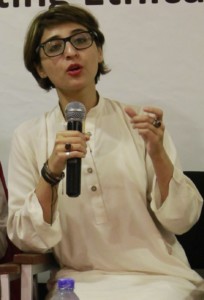
Puruesh Chaudhary, Founder and President Agahi, speaking as a panelists said, “The industry needs to go back to school, it is not only important to explore newer growth opportunities but also to connect with academia to bridge the knowledge-skill gap in the 21st century.”
Moderating the session, Amna Sabahat, Program Manager for Promoting Ethical Journalism 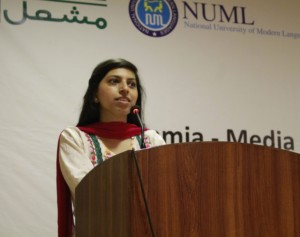 for Mishal said that securing a good job depends on high skill-sets, innovative thinking and hard work. She further added, “at the same time the students need to explore job market even before completing their education”. “Pakistan needs to create more than 150,000 jobs every month. Pakistan’s demographics do not support a job seeking approach for everyone. The youth needs to explore entrepreneurial experiences to create a secure and prosperous future”, she added.
for Mishal said that securing a good job depends on high skill-sets, innovative thinking and hard work. She further added, “at the same time the students need to explore job market even before completing their education”. “Pakistan needs to create more than 150,000 jobs every month. Pakistan’s demographics do not support a job seeking approach for everyone. The youth needs to explore entrepreneurial experiences to create a secure and prosperous future”, she added.
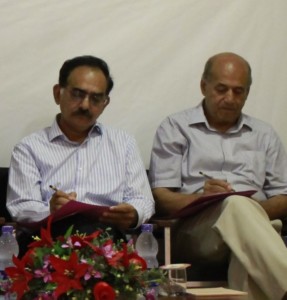 Akram Malik, Director News, APP said, “The courses being taught in the universities should have more concentration on the practical side of various aspects of journalism by introducing practical experience for their students in Print and Electronic Media.”
Akram Malik, Director News, APP said, “The courses being taught in the universities should have more concentration on the practical side of various aspects of journalism by introducing practical experience for their students in Print and Electronic Media.”
Ashraf Ansari associated with the NUML’s initiative for campus radio and a veteran journalist said, “media in Pakistan have promoted awareness among people to a considerable extent, however their focus remained on politics alone. The media needs to have journalists with knowledge of national culture and issues from the grassroots level, who could mobilize public opinion and motivate people to change in the right direction.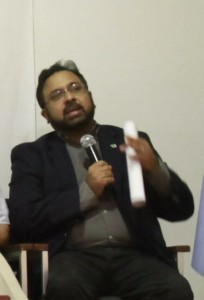
Speaking on the occasion, Amir Jahangir, Chief Executive Officer of Mishal Pakistan said, “In the times of the Fourth Industrial Revolution, the demand for professionalism and ethical business practicing are key to ensure job security. Embracing new and emerging technological knowledge improves not only the quality of work you can deliver but also empowers the young generation to select your future employer of your own choice as well.”
The event by Mishal at NUML was part of the DANIDA-supported ‘Strengthening Media in Pakistan’ project being implemented by International Media Support (IMS), which seeks to promote greater media professionalism in the country and an enabling environment in which to foster it through partnerships with key media stakeholders including media organizations, regulators, coalitions, parliament, policymakers and the government. Mishal earlier conducted academia – media industry interface meetings with the media industry experts and academia along with youth in Punjab, Balochistan, Sindh, and Khyber Pakhtunkhwa.
Mishal and the National University of Modern Languages are jointly establishing the National Academy for Corporate Social Responsibility (NACSR) as well. The NACSR is aimed to create new frameworks and mechanisms for the industry to play an active role in the socio-economic development of the country, while creating new jobs in the knowledge-based economy.
Established in 2003, Mishal has been engaged with some of the most dynamic organizations, including media enterprises and global development agencies helping them develop their communication strategies and solutions for better understanding and creating synergies with their concerned stakeholders. Mishal is the country partner institute of the Center for Global Competitiveness and Benchmarking Network of the World Economic Forum. Mishal’s research and capacity building initiatives have assisted and helped successive governments to improve Pakistan’s global ranking on competitiveness, gender gap, trade and information technology indices.
The mission of the National University of Modern Languages is to establish, sustain and enhance itself as a quality-centric higher education institution that provides excellent academic environment and opportunities for creating educated, productive, and responsible citizens of Pakistan and the global citizenry through intellectual, personal and professional growth.
The National University of Modern Languages was established as an institute in 1970 to help people communicate and understand each other in different oriental and occidental languages, to assimilate different cultures and to act as springboard for emerging disciplines.

